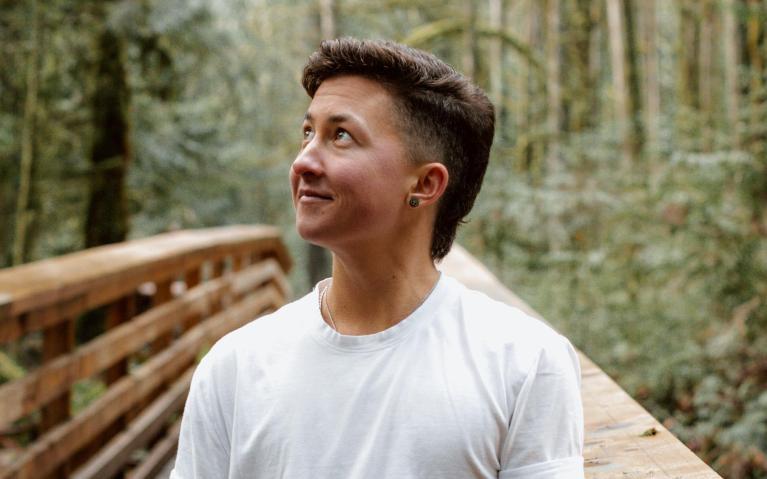
Holly Reid
Doctor of Philosophy in Rehabilitation Sciences (PhD)
Research Topic
An exploration of 2SLGBTQ+ Indigenous peoples' experiences of occupational possibilities and engagement
global migration, occupational science, francophone minority communities
G+PS regularly provides virtual sessions that focus on admission requirements and procedures and tips how to improve your application.
These videos contain some general advice from faculty across UBC on finding and reaching out to a potential thesis supervisor.
Theses completed in 2010 or later are listed below. Please note that there is a 6-12 month delay to add the latest theses.
International migration is receiving increasing attention in occupational science, especially the interactions between the environments, the occupations and the identities of voluntary and forced migrants. The perspective of viewing these as related, but largely independent of one another can conflict with those in the discipline who have been advocating a transactional approach for more than a decade. Moreover, little remains known about the production of space occurring through occupational engagement and the spatiality of occupation in a migration context. This critical ethnography explores the occupations of French-speaking voluntary and forced migrants (immigrants) in Metro Vancouver, in a Francophone minority context. Taking a transactional approach to the study of occupation and drawing from Lefebvre’s theory of the production of space, this research examines the meaning and the production of Francophone spaces in French-speaking immigrants’ daily lives. Attention was paid to diverse intersecting identity markers in immigrants’ experiences and in the production of Francophone spaces. More specifically, partnerships were established with three Francophone community sites and I collected data through in-depth and go-along interviews with fifteen immigrants, and three key informant interviews. Combining transactionalism and Lefebvre’s theory of the production of space allowed me to analyse the production of formal Francophone community spaces through (1) their conception by their leadership, (2) immigrants’ perceptions and understandings and (3) the lived experiences of occupational engagement in these spaces. I paid particular attention to the production of these spaces in regard to the diversity stemming from international migration. While occupational engagement in French was fluid over spaces, formal Francophone spaces represented stable French-speaking landmarks in the Anglo-dominant context of Metro Vancouver. The production of stable spaces, durable over time required a conception by their leaderships and shared perception by the participants. However, occupation was the omnipresent element in both formal and informal spaces, and while it was dominated by the two other components, conceived and perceived space in formal Francophone spaces, it was ultimately shaping these spaces.
View record
If this is your researcher profile you can log in to the Faculty & Staff portal to update your details and provide recruitment preferences.